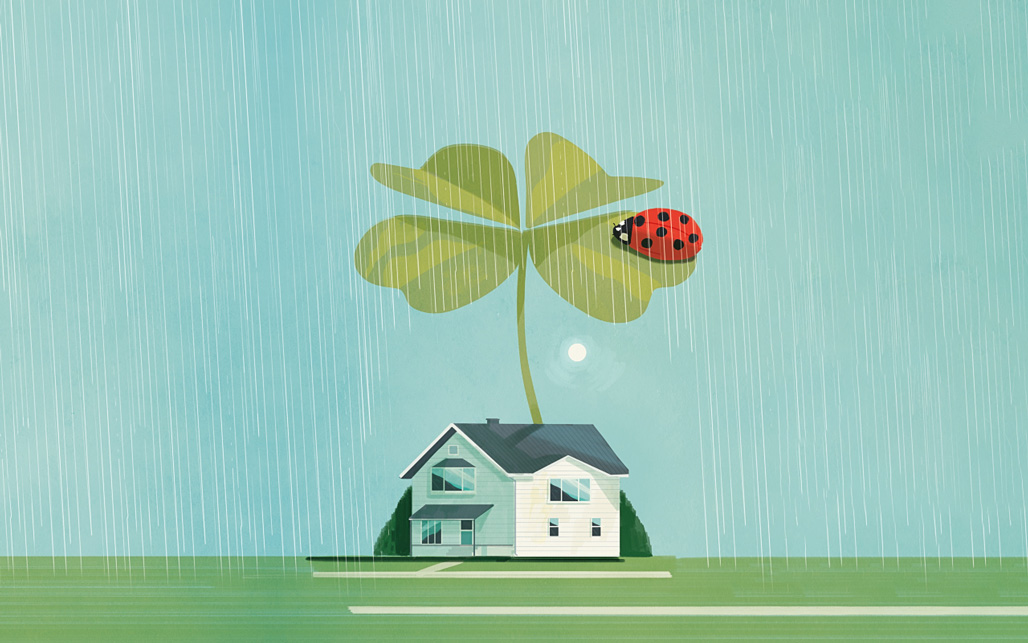In the spring of 2018, my wife, Lynn, went in for her regular mammogram. The technicians didn’t like what they saw, and a subsequent MRI and biopsy revealed that Lynn had triple-negative breast cancer. The tumor was large, and the cancer was advancing into her lymph nodes. She was stage 3.
In the long weeks that followed, I thought about a sign I’d seen at our good friends’ cabin. It read WASL, for “We are so lucky.” Our friends have known more than their share of tragedy, but they’ve always maintained that they are so very lucky.
I thought about their motto as I tried to convince myself that, for all the scary statistics associated with Lynn’s diagnosis, we were also so lucky. I told myself that we were lucky to be otherwise reasonably fit and to have a strong relationship and the support of family and friends, and that we were profoundly lucky to have access to good care. And I believed it most of the time.
If you were to press a global reset button and everyone on the planet were reborn into different circumstances, who’d be lucky then?
I believed it in part because Lynn views each day as an opportunity for light rather than dark. To her, a day in which the glass is half full is actually kind of a bad day. When people have that kind of attitude, others tend to think they were born with a sunny-side-up approach to life. But that’s not giving them their due. It requires them to make certain choices each day—to believe in others, to believe kindness and goodwill are available, and to not waste time criticizing others. It requires that they take joy where they find it and that the starting orientation in any endeavor is toward hope.
But Lynn and I are profoundly lucky in a more literal sense. We were born into loving families with healthy bank accounts. Our careers and life experience helped us find the best possible care. We could make choices that offered Lynn the best chance to live. And today she is doing well, with our fingers remaining firmly crossed for the future. But this has also been a reminder that our good fortune is largely because of an inequity, that we live in a country where the pursuit of happiness, including access to good health care, is less a human right than a function of one’s zip code. Our luck is largely the fruit of random selection. If you were to press a global reset button and everyone on the planet were reborn into different circumstances, who’d be lucky then?
Being lucky does not mean you’re given a pass from life’s tragedies. No one dodges those bullets. But it does mean you get a privileged place in the life lane with the least traffic, fewest obstacles and best odds to survive what life brings your way. And it means you are blessed, as we have been, to receive a showering of human kindness that makes the journey ahead possible, whatever its outcome. And that is more than enough.
We are indeed so lucky. But good luck is fundamentally a reminder: to make our communities more inclusive, to embrace those around us, to smile and weep with those we love. And to leave in our journey’s wake a mist that reflects the sun.
Dave Iverson, ’71, and his wife, Lynn Fuller, ’71, live in Oakland. Email him at stanford.magazine@stanford.edu.



